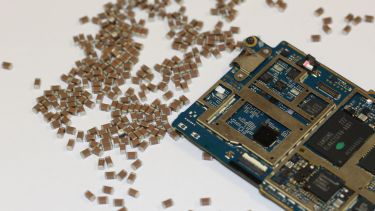Functional Materials and Devices
By understanding how functional materials form and behave, we research different ways of processing them to influence their properties and how they can be applied.

Our functional materials and devices research is divided into three sub-themes:
Functional Ceramics
Ceramics have always been a major part of the Department of Materials Science and Engineering's research portfolio. Our research covers functional ceramics, as well as the more traditional areas of refractories and structural ceramics. Ferroelectrics and piezoelectrics are used in applications such as memories, sensors and transducers. Our research focuses on the discovery of new ferroelectrics and on understanding their fundamental crystal chemistry.
Case Study: A sweet approach to battery materials manufacturing
Key contacts for Functional Ceramics Research
- Professor Ian Reaney
- Professor Derek Sinclair
- Professor Tony West
- Professor John Harding
- Dr Colin Freeman
- Dr Julian Dean
- Dr Rebecca Boston
- Dr Nik Reeves-McLaren
Advanced Magnetic Materials & Devices
Magnetics research is dedicated to the growth, characterisation, modelling and application of magnetic materials. Subtle but crucial interactions that occur on the nanometre scale are investigated by both experiment and micromagnetic modelling, and have potential exploitation in soft and hard magnetic materials, sensors and actuators, data storage and logic.
Key contacts for Advanced Magnetic Materials & Devices Research
Liquid Crystals
Liquid crystal technology has transformed our daily lives, with the LCD industry currently being worth £300bn per year worldwide. Research includes the study of structure and phase behaviour of liquid crystalline and supramolecular polymeric, oligomeric and low molecular systems.
Key contacts for Liquid Crystals Research
